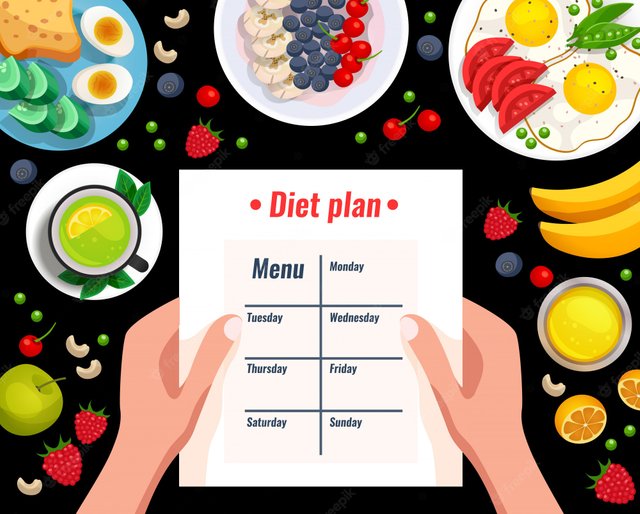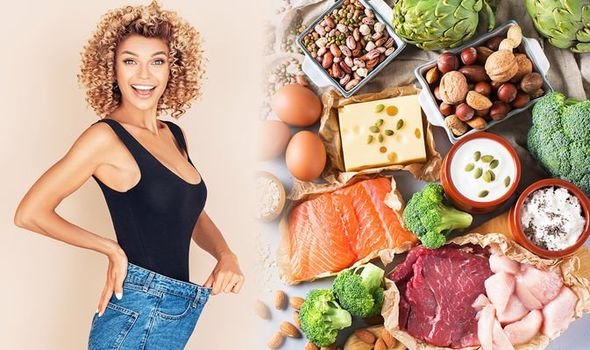Want to Change a Habit? How I Drank Over 100 Ounces of Diet Soda a Day (for 40 Years) but Started Drinking Water Instead

https://www.digistore24.com/redir/283755/Erandaharshana/
We are what we do, and habits underlie most of our behaviors -- so much so that at least one study shows we tend to mistake the reasons for doing certain things, attributing a cause and effect explanation for our actions.
Simple example: Plenty of people say they drink coffee because they're tired and need a pick-me-up, but often the "cause" turned out to be habit. (Think "I need coffee to get me going" versus "when I wake up, I always have a cup of coffee.")
In business terms, maybe that's checking email first thing because you "want to ensure there are no fires to fight," even though starting your day differently would be much more productive. Or holding an every-Monday meeting to "lay out the week" even though most meetings are a total waste of time.
Or, in my case, drinking six to eight bottles of Diet Mtn Dew every day for the past 40 years.
The problem? Habit
First things first: I'm not saying caffeine is bad. Research shows a cup of coffee can significantly improve your problem-solving abilities. Other research shows coffee can improve brain functioning and slow aging. As Inc. colleague Geoffrey James writes, a massive study shows that people who drink a lot of coffee tend to live longer than those who don't.
Problem is, I hate coffee.
But not soda, which is a bummer since a 10-year study of over 260,000 people found that people who drank over four cans of soda per day were 30 percent more likely to be depressed than those who didn't drink any soda.
The culprit? Evidently, artificial sweeteners.
But that's not why I decided to drink less soda. I didn't use caffeine as a pick-me-up, although clearly it was.
Drinking soda was a habit. That's what I drank. I woke up, drank soda. Ate a meal, drank soda. Worked out at home, drank a soda. I defaulted to soda out of habit.
And out of necessity, since caffeine withdrawal headaches are screamers. I could manage that situation, though: I just needed to keep plenty of Diet Mtn Dew on hand.
Except when I traveled. That meant either grabbing a few bottles at night for the next morning, or getting up in the morning and sometimes wandering the streets looking for an open convenience store. That was a pain, but not such a pain to spark a change.
Then one day our son said, "I wish you didn't drink so much soda."
And for some reason I thought, "Yeah, I probably shouldn't."
The solution? Don't think of change as a "diet"
The problem, of course, wasn't kicking the "soda" habit. Soda was just the delivery vehicle. The problem was weaning myself off of three or four decades of extremely high caffeine intake.
I could have limited myself to a certain amount of soda each day; instead of six or eight bottles, maybe five. Or four. But what if I slammed a few early in the day and then was "out" by mid-afternoon? In that case, headache city was my likely destination.
Or what if I decided to mix caffeine-free with caffeinated soda? That would naturally decrease my caffeine intake. Logistically, though, that seemed like a hassle, especially when away from home.
That's the problem with any kind of "diet." Diets are restrictive. Diets force choices that can be difficult to make, especially in certain settings.
Rules, on the other hand, don't require willpower. Since I start every day with a protein bar, I decided I would always drink water for breakfast: that was the rule. To make it easier, I tapped into the power of choice architecture and always kept a bottle of water beside my laptop.
Simple? Absolutely. But here's the thing: I drink because I'm thirsty. I was so accustomed to my level of caffeine intake that I never felt a boost. (I did feel edgy if I drank too much, though.) Water quenched my thirst, so I didn't end up drinking more soda to offset the water I drank.
I still drank the same amount of liquid, but now some of it was water.
And I didn't get a headache.
Then extend the rule
Within a few days, I decided I should always drink water for lunch, too. Why not? Things were going well.
Plus, I was growing more accustomed to the taste of water. In the past I drank water, but I didn't "like" water. It seemed bland. Tasteless. Meh. But since I had the bottle of water on my desk, I left it there and occasionally reached for it rather than soda. (And I refilled that bottle, rather than getting a new one each time, because it made it easier to keep up with how much water I was drinking, and gave me a little mental boost every time I did. Silly? Sure. But effective.)
And here's the thing: I didn't choose to not drink soda in those moments. That would make it a diet -- in effect, choosing to avoid a negative -- and diets suck. Diets force you to restrict yourself. When I occasionally drank water, that was a positive choice, and positive choices are always easier because they make us feel good about ourselves.
Denying yourself requires willpower. Feeling good about yourself is self-reinforcing.
Again, no diets. Just rules.
In time, I extended the rule to every meal. And since I tend to drink after every mouthful of food -- yet another habit -- that meant my soda intake had dropped dramatically. Which meant my caffeine intake had dropped dramatically.
Which meant I could drink a lot more water between meals, without getting a headache.
And within about a month -- which sounds like a long time, until you compare it with the 40 years I had spent basically only drinking soda -- I was down to less than a bottle of soda a day. Now I average half a bottle or so.
Surely that's good for my health. Even if it wasn't, I no longer have to worry about making sure soda is available. One thing less to think about? I'm always up for that.
Why haven't I gone cold turkey? That was never the point. The point was to drink less soda. The rules I created, and the habits that resulted, made that possible.
Besides: There's a danger in trying to be "perfect" at anything. Perfection requires a level of rigor, focus, and at times self-denial that can be extremely difficult to maintain.
Habits, though, are easy to maintain. Habits don't require perfection. Habits don't require willpower. We just do what we do, often without thinking.
Sometimes that's a good thing; often it's not.
But when you use a rule instead of a diet to change a longstanding behavior, it's a whole lot easier to replace a bad habit with a positive one.
Even a habit that was 40 years in the making.
The opinions expressed here by Inc.com columnists are their own, not those of Inc.com.
02
An environmental scientist shares how to eat sustainably if you don't want to go vegan or vegetarian

https://www.digistore24.com/redir/283755/Erandaharshana/
A purple and beige checkerboard header that says, Better Me Presented by Vital Farms"
Alyssa Powell/Insider
You can help protect the environment and still enjoy meat as part of a healthy, sustainable diet.The Good Brigade/Getty images
Changing your diet can help improve both your health and the planet, an environmental scientist says.
A healthy, sustainable diet can be flexible and doesn't need to cut out any foods entirely.
This article is part of "Better Me," a series about improving your lifestyle and helping society through sustainable efforts and eco-consciousness.
If you're concerned about the environment, but overwhelmed thinking about how to combat climate change, you may want to start in your own kitchen.
Changing your eating habits is one of the easiest ways to make a difference for planetary and personal health, according to Fabrice DeClerck, director of science at the food system sustainability non-profit EAT.
"We're really at a critical turning point where if we don't begin to react to the climate challenge, we're really going to find ourselves stuck in what are catastrophic conditions for too many people," DeClerck said. "The value of food is that it provides an opportunity for anyone, anywhere, to contribute to improving climate impact."
The planetary health diet recommends making fruits and veggies half your plate, with whole grains and small portions of animal products. Doing so could benefit both your health and the environment, according an expert report published in The Lancet.
Small, everyday changes add up to a big difference for greenhouse gas emissions, as well as reducing risk of illnesses like heart disease, according to DeClerck.
"There is no tradeoff between healthy diet and environment, but a transition toward a healthy diet is a win-win for public health, individual health, and environmental health." he said.
Consider meat as a side dish
Tablescape with salads, steak, mushrooms, and bread
Having 1-2 servings of red meat per week is a healthy and sustainable dietary option.Istetiana/Getty Images
Red meat can have a significant effect on both the environment and human health,but you don't have to cut it out completely, according to DeClerck.
"Vegan or vegetarian diets can be healthy options, but there is a healthy omnivore option as well," he said.
Story continues
Current sustainability guidelines recommend no more than 200 grams (1-2 servings) of red meat per week.
Enjoy red meat once a week, swapping in more seafood or poultry. Or, make meat a smaller part of each meal, using it as a source of flavor and protein instead of the main dish. For example, add meat into pasta sauce, stir fry, or curry, combined with plenty of veggies and whole grains.
Eat more fruits, vegetables, nuts, and whole grains
Whole grain salad with vegetables.
Whole grains and vegetables provide essential fiber.Getty
Adding more plants to your diet not only reduces your environmental footprint, but also adds nutrients like fiber, vitamins, and minerals, according to DeClerck.
While the Mediterranean diet is often touted as an ideal example of a plant-rich diet, there are many ways to incorporate different foods and cuisines.
"We've been trying to walk back from that, saying no, there's a Mexican variant, there's a Ghanaian variant, there's a New York variant," DeClerck said. "The diet actually affords a huge range of flexibility."
Start by adding one more serving of veggies to your routine, such as a daily salad.
Choose healthier convenience foods like frozen veggies and canned beans
You don't have to sacrifice healthiness for convenience when cooking.ALLEKO/Getty Images
However, not everyone has access to fresh foods or time to prepare them, a major obstacle to healthy, sustainable diet.
Foods like frozen veggies and canned beans can be just as nutritious and more convenient — just look for options without added sugar, fat, or salt.
"Typically as a rule of thumb, the shorter and more understandable the ingredient list, the better," DeClerck said.
Create a weekly meal plan
Overhead view of a bowl of red cabbage, carrot, green pepper, and boiled egg salad and notepad with a meal plan list
Creating a sustainable meal plan takes the guesswork out of daily meal prep while effectively incorporating clean eating.Annabogush/Getty Images
To help stay on track with your eating habits, it can be helpful to strategies ahead of time, DeClerck said.
Thinking of a weekly meal plan, instead of each day, can take the pressure off healthy eating and emphasize the big picture.
"It allows people to enter into healthy diets with less trepidation so if you want to have that hamburger on Friday night, or roast beef dinner, that's completely fine. The environmental or health impact happens if you're having that every day," he said.
Read the original article on Insider
03
A Revolutionary New Way to Improve Your Diet and Health

https://www.digistore24.com/redir/283755/Erandaharshana/
In recent years, the role of bacteria and other organisms in the gut have become a major focus of those looking to improve health and wellness. Probiotic companies promise everything from improved digestion to a better mood and have made billions selling their products. However, every gut is entirely unique. What may work for you may do little for someone else, so it’s important to know exactly what your gut needs. A new company called Viome is looking to provide a high-tech way of making that happen.
Viome is the only company that uses RNA sequencing to analyze your gut microbiome. This technology allows them to provide accurate personalized diet and nutrition recommendation for improved health and wellness. A customer sends a small stool sample to Viome using a simple home test kit that is delivered to their door. A proprietary artificial intelligence engine that was created by scientists, physicians and nutritionists will analyze it. Customers also do a metabolic test and complete a questionnaire about their habits to help further hone in on their needs.
Naveen Jain, founder and CEO of Viome, told Futurism that many companies use DNA sequencing to analyze your gut, but looking at DNA creates false information about what’s ailing you. He said by analyzing RNA, they can tell customers exactly which foods are good for them and which ones are not.
“RNA only gets created when something is alive and replicating,” Jain said. “Since RNA only lasts for a short time, every time you take the sample, you only see microorganisms that are alive.”
Jain said Viome was able to offer RNA analysis, which is usually very expensive, because it teamed up with Los Alamos National Lab. That lab does research related to national security, and they were studying biodefense before Viome launched. They were researching the best way to quickly find out what’s making people sick if there’s a biological attack, and they developed technology that was much cheaper to use so it can be used on a large scale. Viome now brings that technology to the populace.
Once a customer has done their tests and completed the questionnaire, Viome delivers nutrition recommendations and other advice specifically tailored to improve their overall health. People who are looking to lose weight, eat better, feel better or improve other aspects of their health can benefit from such an analysis.
Dr. Helen Messier, Chief Medical Officer at Viome, said that “by looking at the microbiome using RNA technology we now have an unprecedented understanding of how these microbes affect one’s health. We can precisely see whether an individual will benefit or be harmed by specific foods such as spinach. walnuts, protein shakes, broccoli, or beets which were previously thought to be healthy for everyone. It is not about the food being healthy, but about whether it is healthy for you. This is all determined by your microbiome.”
Studies have shown what happens in your gut also affects how you feel mentally, and vice versa. Have you ever had stomach issues and felt upset or gotten queasy before a job interview? We all have, and that’s because the gut and the mind are closely connected. There is actually a nerve called the vagus nerve that connects the gut to the brain to relay messages between them. If your gut is happy, it’s much easier for you to feel happy.
“This gut-brain axis is the connection between our gut and our emotions and behavior," Jain said. “Microbes in humans are really controlling everything we do.
There is an ongoing debate over what specific diet and foods are good for the average person. In the era of new fad diets coming out almost daily, eating right can be very confusing. Viome makes conflicting food advice obsolete. You are now able to harness the power of cutting edge technology to know exactly what you need to eat to feel better, lose weight, end cravings and have more energy. What you eat can affect the gut significantly, so learning what foods you should eat is critical for your good health. Viome makes this easy, and you can use code FUTURISM20 for $20 off your order.
Disclosure: This is an affiliate post for Viome, and Futurism may receive a percentage of sales. Futurism editorial staff was not involved in the production of this post.

This is a one-time notice about a free service on steem.
There are communities that help support the little guy 😊, you might like ours, we join forces with lots of other small accounts to help each other grow!
Finally a good curation trail that helps its users achieve rapid growth, its fun on a bun! check it out. https://plu.sh/altlan
Downvoting a post can decrease pending rewards and make it less visible. Common reasons:
Submit